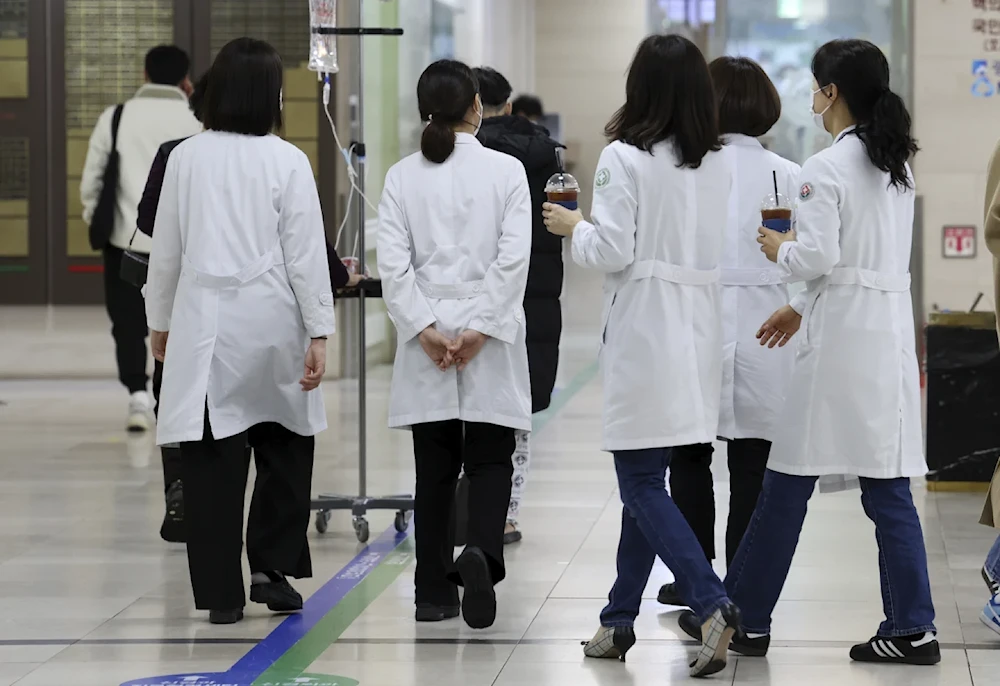South Korea issues mandate for doctors to return to hospitals
Amid a contentious dispute with the government over proposed medical training reforms, doctors in South Korea are handing in mass resignations, raising concerns about the potential impact on medical services.
-

Medical workers walk inside a general hospital in Gwangju, South Korea, Monday, February 19, 2024. (AP)
South Korea has directed trainee doctors to return to their duties on Monday, following their mass resignation in protest of medical training reforms. The government is exploring the possibility of deploying military medics to address staffing shortages.
The East Asian country contends that it possesses one of the lowest ratios of doctors to population among developed nations. The government is actively advocating for an increase in the number of doctors, driven in part by the need to support a rapidly aging society.
However, medical professionals have strongly opposed a new government proposal to significantly increase medical school admissions, arguing that it could negatively impact the quality of healthcare services. Critics argue that doctors are primarily worried about potential reductions in their salaries and social standing resulting from the reform.
South Korean Trainee Doctors Defy Resignation Threats
On Monday, despite the government's warnings of potential legal consequences, hundreds of trainee doctors submitted their resignations and were poised to cease work starting Tuesday.
However, the government announced that it had "issued treatment maintenance orders for all trainee doctors," as stated by Second Vice Health Minister Park Min-soo during a press briefing. This refers to a legal measure designed to prevent work stoppages by medical practitioners.
In accordance with South Korean medical laws, doctors, deemed essential workers, are prohibited from engaging in widespread work stoppages.
"I implore trainee doctors to not turn their backs on patients," he said.
Furthermore, the government stated that it would conduct inspections of hospitals to verify if doctors had participated in the strike.
The police issued a warning that they might apprehend "key instigators" of the work stoppages.
Public weary of hospital wait times
Despite opposition from doctors, the plan has garnered public support, with experts suggesting that the public is weary of extended wait times at hospitals. A recent Korean Gallup poll revealed that over 75 percent of respondents favor the plan, irrespective of their political affiliations.
However, doctors have vehemently opposed the plan, with the Korean Medical Association likening the government's legal threats to a "witch hunt".
Vice Minister Park emphasized that the plan is essential in South Korea's rapidly aging society. Without an increase in the current quota, doctors would face an "exponential demand" that could potentially overwhelm the healthcare system in the future.
"Hospitals are already having a hard time finding doctors now, and problems of accessing medical service in time have occurred repeatedly," Park added.
Over 700 trainee doctors have tendered their resignations, as reported by the government.
The Defense Ministry announced intentions to open military hospital emergency wards to the public should the doctors proceed with the strike. Additionally, the possibility of deploying military doctors to civilian hospitals to address the staffing shortage is under consideration.
Read next: South Korea tries $500 allowance to help reclusive kids get out

 3 Min Read
3 Min Read








